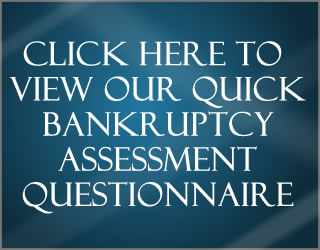Chapter 7 Bankruptcy
If most of your debts are unsecured, meaning that there is no property securing the debt thereon, and if you have little or no equity in the assets you own outright, then a Chapter 7 Bankruptcy may offer the relief you need. A Chapter 7 Bankruptcy allows you to rid yourself of nearly all of your unsecured debt, such as:
- Credit card debt;
- Overdraft account balances;
- Medical bills,
- Payday loans;
- Most judgments
A Chapter 7 Bankruptcy will also stop garnishments and will temporarily stop foreclosure of homes.
You may also be able to keep certain assets such as your vehicle(s) and home if you are current on your loan at the time of filing and remain current thereafter. You may have to sign a reaffirmation agreement in order to retain the secured assets you want to keep.
Things to consider:
- Have you filed a chapter 7 before? You are only allowed to receive a discharge in a Chapter 7 case every 8 years. If it has been less than 8 years since the filing of a previous Chapter 7 case in which you obtained a discharge, you could still be eligible for a Chapter 13 even if it only buys you time until you can file a Chapter 7.
- Do you own and want to keep real estate or vehicles? It may be possible to retain your assets in a Chapter 7 case if there is little or no equity in that asset beyond the exempted (protected) amount allowed under applicable state law. A Chapter 7 Trustee will be looking for any and all assets that can be sold and used to pay creditors. If your assets have little or no equity and you are current on your payments, it may be possible to retain these assets. If there is a substantial amount of equity, you should consider Chapter 13 Bankruptcy in order to protect these assets.
- Do you owe state or federal tax debt? If these taxes are old enough, they may be discharged in a Chapter 7.
- Are there co-signers on any loans you have? The debt will be discharged as to you, but not as to the co-signer. Chapter 13 can offer protection to non-filing co-signers in these circumstances.
- Do you have any loans through your banking institution? When you file bankruptcy, your bank may close your account.
- Do you have an outstanding balance with utility a company? If so, this utility company may charge a deposit to your account which must be paid within 20 days after the filing of your case in order to retain service. The existing balance at the time of filing will be discharged.
A Chapter 7 will not generally eliminate:
- Taxes accrued during the last 3 years (other limitations apply as well);
- Student loans;
- Debts incurred through fraud;
- Debts to a spouse as ordered in a divorce decree, alimony or child support; or
- Criminal judgments or restitution.
A Chapter 7 Bankruptcy offers the most comprehensive elimination of debt under certain circumstances. Only an experienced bankruptcy attorney can determine if you qualify and if a Chapter 7 would be in your best interest. Experienced bankruptcy attorneys can determine and point out the strategical reasons to file 7 as opposed to Chapter 13 or visa versa.
Considering options to handle your debt and living in Utah? Call me and we’ll discuss how I can help you navigate the process and find the best solution.

